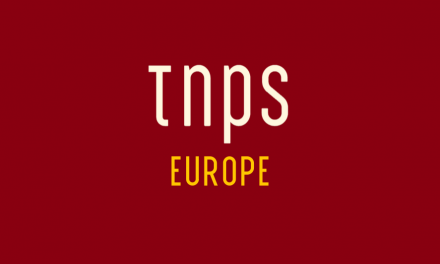No, I double-checked the date. It’s not April 1 and James Daunt, CEO of the UK’s Waterstone’s and USA’s Barnes & Noble bookstore chains really did say “We sell an awful lot of e-books in the US.”
Daunt’s Damascene conversion unsurprisingly came during the pandemic where, with much of the USA and UK in lockdown, he had to take a serious look at the ebook operation Nook that he inherited, and watch rivals see ebook sales where once there had been a Waterstone’s ebook store.
Talking to The Bookseller, Daunt said,
Evidently it has been helped by the pandemic, but things have turned around for Nook. The perception that I am anti-e-books is wrong. I am very in favour of them if I can sell them, and I have not been able to do that [in the UK]. One of the things where I differ from my immediate predecessor at B&N is that I consider the ability to sell e-books to be a great strength, and the company had stopped investing in Nook. That will change. We will make Nook very much part of what we do [in the US].
Okay, so first, once we’ve picked ourselves up off the floor, let’s consider the attempt at rewriting history, and call out the convenient memory lapse for what it is.
The perception that I am anti-e-books is wrong. I am very in favour of them if I can sell them, and I have not been able to do that [in the UK].
Hmmm. Might that be, Jim, because when you took over the Waterstone’s operation in the UK (it had an apostrophe back then) it had a small but growing ebook arm, that didn’t perform well, mainly because even though you sold ereaders in store most Waterstone’s staff did not even know Waterstone’s had its own ebook store.
Speaking from harsh experience here, Jim, from back when I was a Waterstone’s ebooks chart topper but would be told by staff, “You must be mistaken, sir. Waterstone’s doesn’t have an ebook store. We only sell the devices.”
Then you came along, Jim, and instead of investing in the Waterstone’s ebook store you instead invited Amazon – yes Amazon – to sell Kindle devices right there in the Waterstone’s stores, on its own plinths. amid the bookshelves
And of course those few readers who had somehow discovered Waterstone’s had an ebook store would then find they couldn’t read their ebooks on the Kindle devices they had bought in Waterstone’s, so they went and shopped in the Kindle store, and probably bought a lot of print books from Amazon while they were there.
So let’s be clear. You may, possibly, just possibly, not have been as anti-ebooks as some believe, and of course everyone is entitled to change their mind, as you did when you went from calling self-published titles “unutterable dross” to saying “I have been converted to the virtues of self-publishing a long time ago.”
But let’s make no mistake that it was you, James Daunt, that caused the failure of the Waterstones ebook store (it died without even the dignity of an apostrophe) by deliberately undermining its viability by encouraging Waterstone’s customers to buy ebooks from the Kindle UK store.
The Bookseller quotes you as saying,
Questions about selling e-books in the UK had been parked during the coronavirus crisis, but added that it would be looked at again. “I wouldn’t hold your breath, but all other things being equal, it is something we should aspire to do. We sell an awful lot of e-books in the US.”
Well good luck with that, Jim. You made that bed. Now you must lie in it.
But thanks for proving me right.
From TNPS in March:
…James Daunt must be regretting shutting down the Waterstones ebook site, which might otherwise now be a vital survival lifeline for the company.
While Gardners have suspended the warehouse operation their digital books sector continues unaffected.
Waterstone’s CEO Daunt is also in charge of the USA’s Barnes & Noble operation, and right now he will no doubt be seeing B&N’s ebook arm Nook in a new light, as a safety net in times of print peril.






Great article Mark – James Daunt clearly living out his own Blockbuster moment